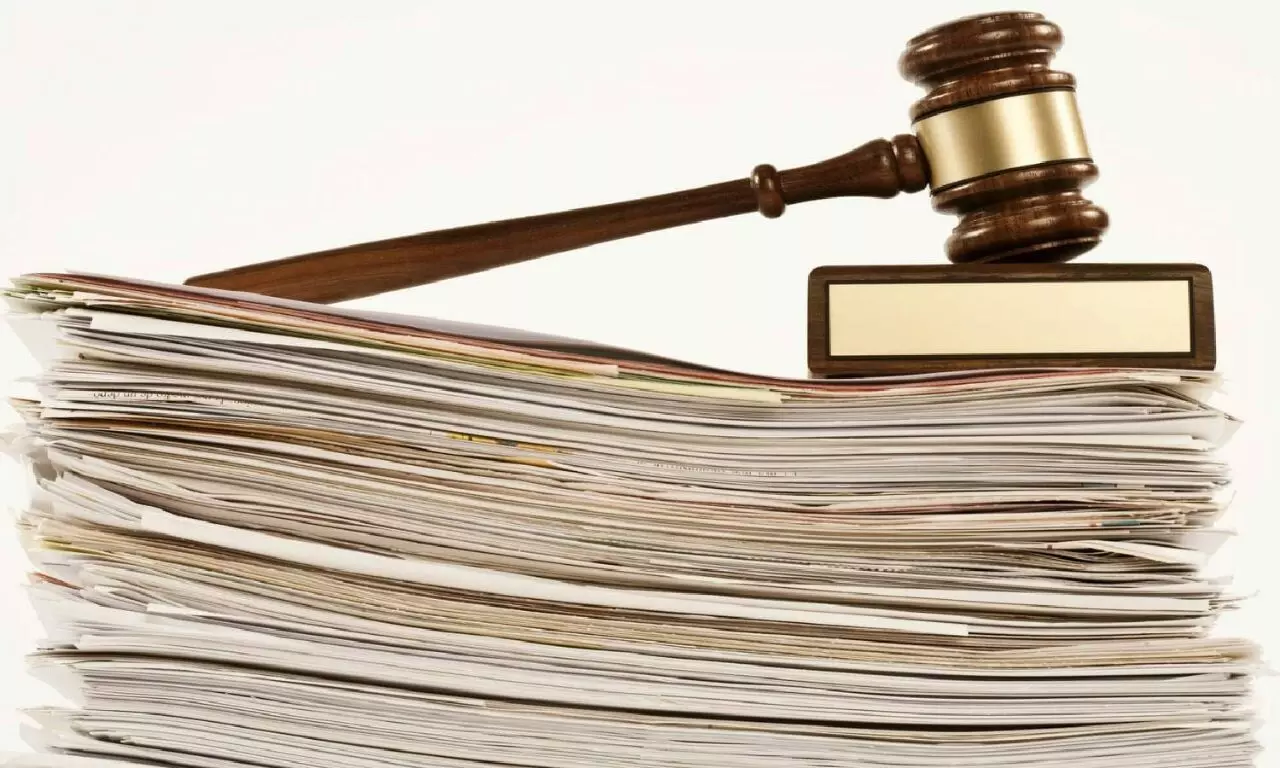TS High Court disposes of 47% of cases in a year; experts cite higher judicial appointments as reason
Compared to other High Courts, the Telangana High Court disposed of more pending cases within a year
By Nimisha S Pradeep
Hyderabad: According to the National Judicial Data Grid (NJDG) data, 47% of cases get disposed of within a year in Telangana High Court, i.e., around 7,965 cases. In terms of the percentage of cases disposed of, Telangana with 47% stands 5th on the list of the top five High Courts along with Himachal Pradesh (56%), Chattisgarh (55.56%), Andhra Pradesh (49.97%), and Delhi (48.76%).
In absolute terms, Telangana with 7,965 cases stands second after Madras High Court with 17,125 cases disposed of within a year.
The data of cases pending in the Supreme Court, High Courts, and district and subordinate courts was tabled in the Lok Sabha by the Union minister of law and justice, Kiren Rijiju, on 1 April. This was in response to a question on pending cases in courts by MPs T.R.V.S Ramesh, Rajendra Agarwal, Jagdambika Pal, and P.P Chaudhary.
How is TS HC able to dispose of cases more quickly?
As minister Kiren Rijiju pointed out, timely disposal of cases depends on various factors which include the availability of an adequate number of judges and judicial officers, supporting court staff and physical infrastructure, the complexity of facts involved, nature of evidence, the cooperation of stakeholders namely bar, investigation agencies, witnesses, and litigants, and proper application of rules and procedures.
Compared to other High Courts, the Telangana High Court disposed of more pending cases within a year. Pointing out the possible reasons, senior counsel of Telangana High Court Lakshmi Narayana Ravichander said, "The Telangana High Court is new so the administration may be able to identify and dispose of old cases as outdated or serving no purpose."
However, the TS High Court disposing of more cases quickly is nothing to celebrate, added L.N Ravichander. In fact, he pointed out that it was only recently (1 April) that the Supreme Court had expressed concerns about the sorry state of affairs of the pending arbitration cases. The Arbitration Act requires arbitration proceedings to be disposed of within a year. The apex court further directed the Registrar General of the Telangana High Court to submit a detailed report on the number of pending arbitration applications before the High Court and from which year.
High Court advocate Kruthi Kalaga, on the other hand, said that the high number of appointments in Telangana High Court could be one of the reasons why more cases are getting disposed of quickly. "We have had more than 15 appointments in the last few months in the Telangana High Court. In fact, a lot of appreciation ought to be given to CJI N.V Ramana. As an administrator, he has been making sure that there are a good number of appointments being made. Now, after a good deal of judicial appointments in the High Court here, it's apparent that the number of cases that are dealt with every day is progressively higher than what they used to be a few months ago," she said.
Justice delayed is injustice
At the same time, it is important to note that some cases take more than 20 years to get disposed of in these High Courts. In Telangana, 7.67% of cases take more than 10 years to get disposed of and 0.11% of cases – around 18 cases, a small number – still take more than 20 years to get disposed of. Advocate L.N Ravichander explained that some cases are complicated. "They take more time. Sometimes some documents are not available or the witness is not present. There are several issues and mostly, they are logistic issues," he explained.
Advocate Kruthi added, "Every court does have some really old cases from the year 2000 and up. Funnily enough, when some matters take a bit of time because they require adjudication and with each passing year there are newer and newer cases also being filed. Then the older cases end up going on the back burner because of various reasons." She added that sometimes even the parties who filed the cases don't remember that they are pending.
Another reason that advocate Kruthi cited is the type of cases. "There are different types of cases at the High Court – writs, appeals from different courts, and tribunals, etc. Writs may get closed faster than appeals at times," she said.
How to speed up our judicial system?
In general, courts in India have received backlash for the delay in giving verdicts. One of the primary ways to speed up our courts is by increasing their resources. "Regular appointment of judges. There should be no delay in the appointment of judges and it should be ensured that there are enough judges in all the courts," said Mr. Ravichander.
Another change that he sought is to make all advocates tech-savvy. He said that only tech-savvy lawyers should be appointed in courts from now on.
Advocate Kruthi said people need to start utilising alternative avenues like arbitrations and conciliations to fasten the judicial process. "They can be executed like court orders. This would reduce the court's burden, to begin with. Also, amicable negotiations and mediations with an agreement is also a great way to address civil disputes," she added.